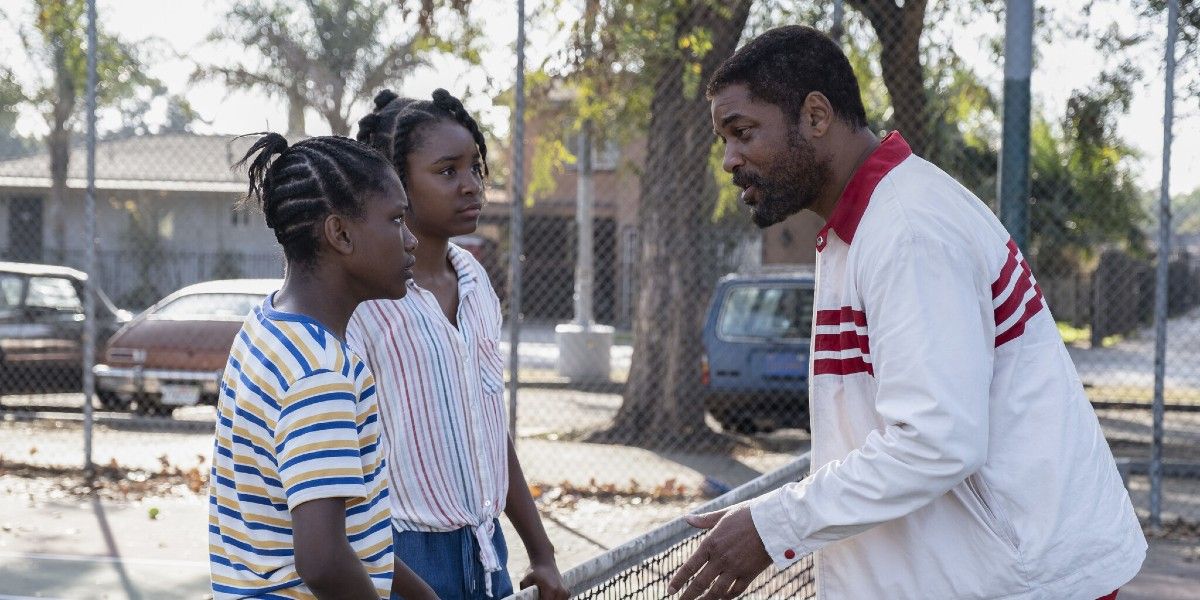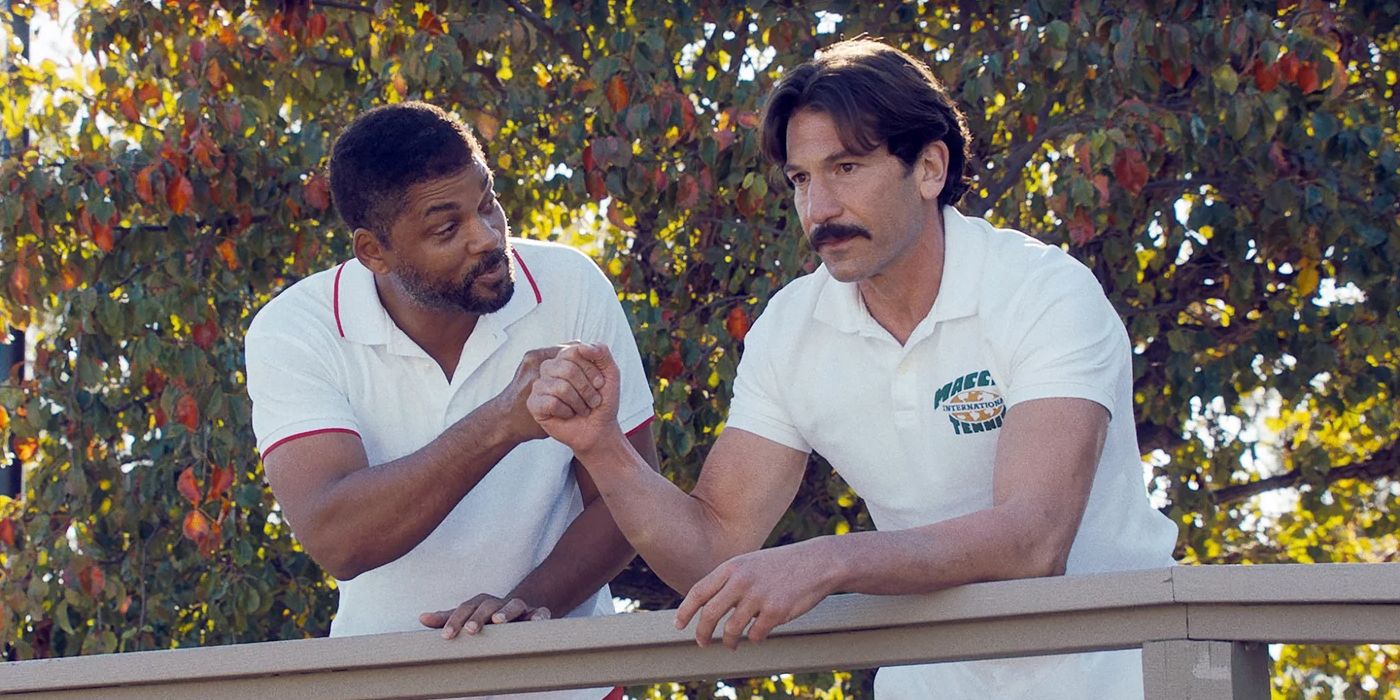On the surface, King Richard plays like a pretty standard sports drama. The film, which is now in theaters and on HBO Max, hits all the familiar inspirational beats. It's an underdog story full of hard-won wisdom. It's cut together with close-ups of the actors' grunting faces and wide angles of passable athleticism. It's scored by music that swells at important moments, with post-script title cards and home video footage that roll before the end credits. But this biopic about the childhoods of tennis legends Venus and Serena Williams under the very particular tutelage of their father, Richard, is elevated by excellent performances and a few purposefully uncomfortable choices that add something new to the tried-and-true formula.
King Richard became the subject of some debate primarily because the film centers on Richard and not Venus or Serena, who, it should be noted, are executive producers. Upon first thought, it might seem a bit sexist to sideline the actual phenoms in a movie about two groundbreaking Black female tennis phenoms. However, had the film been told from the perspective of or solely focused on the girls, it would've been little more than a (well-deserved) vanity project. Stories need conflict, and that's where their father, and the innovation, comes in.
Like many, many sports dramas before it, King Richard wades into the topics of family dysfunction and institutional racism. Sports and race have frequently crossed paths in history and pop culture, in America especially. And ask any parent who plans their life around practices: participation in sports is inextricably linked with family dynamics. From Brian's Song to Remember the Titans to Invictus to The Blind Side, these movies get a little complicated but always leave the viewer feeling as if everything is better by the end. It doesn't really matter if the athlete or the team won or lost the game; there's an emotional victory, sometimes for the audience and the country as much as for the protagonist.
What's different about King Richard is that, while it leaves viewers in a fairly conclusive place about tennis, it leaves its commentary about race and parenting refreshingly unresolved. Because the film hews so remarkably close to real life, anyone who has followed the Williams sisters' careers will know how things turn out. Those who don't remember the final scores of tennis matches from the mid-90s may be slightly surprised by the ending, but the movie sets itself up for success by taking on just the right amount of story. Far too many biopics try to fit far too much biography in about two hours. The story picks up with the Williams family when Venus and Serena are tweens looking for a coach and bids them adieu as young teens who are just about to turn pro. In that brief window, the film examines the challenges the girls faced trying to navigate a world that wasn't exactly accessible to working-class Black people under intense pressure from their dad.
Will Smith plays Richard Williams in a performance that could win him his first Oscar after two previous nominations. Richard is an idiosyncratic figure and Smith completely unselfconsciously captures him at his best, his worst and every awkward moment in between. A Black man born in the Jim Crow south, a Jehovah's Witness who was thrice married and an extremely driven father with a 78-page plan for his daughters written before they were even born, Richard Williams is -- like most people -- too complicated to summarily criticize or praise.
On one hand, he's the stock image of the worst kind of sports parent, all-consumingly basking in the glory of his kids. He reeks of hubris, and he kept his daughters to such rigorous schedules and standards, neighbors really did call child protective services. On the other hand, he fought relentlessly to give them opportunities he didn't have and he protected their right to be children once they were in the public eye. Richard has also been notoriously confrontational about race, which affected his reputation, and the film depicts this word-for-word. He's not wrong. Country club sports like tennis are exclusive and expensive, and Venus and Serena wouldn't have become who they are without his persistence.
But King Richard doesn't pretend that it's solved racism -- or toxic sports parenting -- in any way. They're just part of the story, always in the background, as they must have been for Venus and Serena. Rather than give the audience the false satisfaction of a lesson learned, the film is mostly concerned with recreating the rigidly managed youth of elite athletes, and it's more interesting because it lets audiences sit with the uncomfortable moments that got them there. Plenty of parents want and do the same for their kids as Richard, and the film is almost agnostic about whether that's a good thing. It gives viewers glimpses into the toll such pressure is taking on other girls, and it suggests that Venus and Serena became champions not just because of Richard's plan but because of their unmatched natural talent.
To see how it differs from other sports dramas, King Richard is now streaming on HBO Max.



